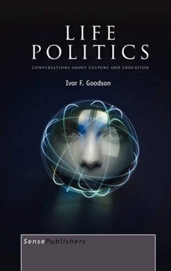Life Politics: conversations about education and culture
Mediation is the Message
QUESTION: ... I think that a constructionist perspective is a way to deconstruct structuralist arguments like Bernstein’s, and that we are able to use notions as “boundaries” not in a structuralist perspective. But the moment of domination is the moment of the creation of new boundaries in social structure.
IVOR: That’s correct, but my point is that most of the time, if you look across history, it’s not times of creation of boundaries, it’s times of mediation and systematic dissolution of boundaries. So people are working within the boundaries, if you will, so they’re working within structure, but in a way, they are re-making daily (…) structure. So it is to say, if you only understand in structuralist terms, you’re only thinking about some very unusual moments in history. The point really is not to understand boundary making per se, but to understand how people deal with, play with, cross boundaries, border boundaries. That’s the sociological challenge. Not to understand the moment of domination, but to understand long going moments of mediation. Because otherwise you silence agency. The great problem of that kind of theorizing is in many ways it’s complicity with power, because it believes power is more powerful than power is. It celebrates power. Structuralism in that sense celebrates domination. Whereas I would be more interested in celebrating mediation because it hands back degrees of capacity to people, which often ends up with solicitous surrender to boundaries. But sometimes it doesn’t. It gives you a chance to leave the question open as to what your daily activity and habitus is. I’m not saying therefore you are a dominated, powerless individual, which is the basic message of much of this theory. And not surprisingly, most teachers, most of the time have said “no thank you”. Because the message is “you are a powerless person who cannot read structure, you don’t know what you’re doing, you don’t see the boundaries which are restricting your consciousness”. Some of this is true, but not surprisingly, teachers have said “your interpretation of me as a powerless player out of domination; I reject. Whether I am or not, I’m not buying your book”. So I would prefer to spin this in a way which I think is inherently true, which is to say the interesting case is how these moments of structuralist domination get mediated. Most of the time, we’re talking mediation, not domination.
